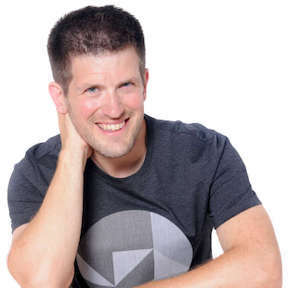We're sat in a silent, empty, cardiac treatment room - on the other side of the door, you can hear the bustle of the largest A&E and major trauma ward in Devon.
Ambulances arrive, patients are wheeled on stretchers, families wait pensively.
Consultant Dr Anne Hicks, from Derriford Hospital in Plymouth, is with me - she's worked in emergency care for more than 30 years.
There is a long pause when I ask what the hardest part of her job is.
"I don't think it's looking after the trauma patients," she says.
"The toughest part is talking to the relatives. I get huge satisfaction from doing it well - but I can remember the face of every relative I think I've ever spoken to."
She, like many of her colleagues, has had to tell the parents of teenagers killed in car crashes the worst news.
"The tragedy is nothing to what that parent feels when you tell them their child has gone. That their child has died."
This is the so-called ripple effect - so many lives impacted by deaths on our roads, beyond the immediate family.
Sky News has spent the last year reporting on a long-running campaign - led by grieving families - to get the government to toughen rules on new young drivers within its Road Safety Strategy, which is set to be announced soon.
But as well as relatives, there is a whole other group impacted by deaths on Britain's roads.
Emergency service workers are often the first to arrive at some of the most horrific and distressing scenes.
We've been given access inside Derriford Hospital in Plymouth and Devon Air Ambulance - to understand how frontline workers deal with such trauma.
Grant Thompson is a paramedic with the air ambulance team based at Exeter Airport. We're inside the medical stockroom, used to refill the chopper after each callout.
He remembers a callout last summer.
'A shock to the system'
"It was one of those jobs when you're not expecting, I suppose, what you're going to see," he says.
"We started realising this was going to be a bad job. You started thinking, 'how are we going to split up as a team?' We got there reasonably quickly and three of these young people actually died at the scene, which was quite difficult.
"It was trying to give the best care you can for everybody - they were quite severely injured. It's always a shock to the system when you get to those jobs. It can be tricky. It can be tricky."
Those three young deaths were among more than 1,600 on Britain's roads last year - with nearly 130,000 injured.
Some 22% of those fatalities involved a young person behind the wheel.
New data released by the Department for Transport also shows male drivers aged 17-24 are four times more likely to be killed or seriously injured than all drivers aged over 25.
Read more from Sky News:
PM and chancellor hit at tax rises
The underground squad with lives in their hands
Death is one thing, life-changing injuries another.
Inside the major trauma unit at Derriford, ward manager Larissa Heard says she's seen the "whole scale" of reaction.
"Some patients are amazingly resilient and take it really well - for others it is absolutely life-changing, and they are hysterical," she says.
"This could be the first time that they're actually seeing their injuries in full light. It might be the first time that they're actually aware they've had an amputation or are actually paralysed.
"So having to manage that for us can be really hard."
'It's only afterwards the impact hits you'
As we chat, an 18-year-old who has lost a leg in a car crash pushes himself past us; staff say there are always victims of RTCs on the ward.
Treating the physical and mental scars of collisions is, of course, their job.
Like all those in the NHS, that responsibility comes first.
"I don't think you feel it until you get the lovely thank-you cards at the end, and you find out the patients you looked after knew your name," says Catie Crisp, a trainee advanced clinical practitioner.
"It's only afterwards the impact hits you: 'I can take a deep breath now, that was really hard, that was really emotional.'"
A possible solution?
Like the families who lost children, emergency workers would welcome any measure that could reduce the number of young people injured and killed.
Graduated driving licences (GDLs) place restrictions on new young drivers in the first few months of driving, such as a ban on driving late at night and with a car full of people - factors so often part of fatal accidents.
In Canada, one of the first countries to introduce GDLs, it takes at least 20 months to gain a full driving licence, with learners earning certain freedoms in stages. Deaths among young drivers are down 83% in the five years to 2022, compared to the same period before GDLs were brought in.
For emergency consultant Dr Tim Nutbeam, introducing a similar scheme would be a step in the right direction:
"I believe in evidence informed practice and for me the evidence from Canada, from other parts of the world is really strong. I believe GDL saves lives.
"I've got four children. One of them in a couple of years will be driving. I as a parent will be making sure a similar structure to GDL is in place to try to keep her safe."
But the Department for Transport says it is not considering them.
A spokesperson told Sky News: "Every death on our roads is a tragedy and our thoughts are with everyone who has lost a loved one in this way.
"Whilst we are not considering graduated driving licences, we absolutely recognise that young people are disproportionately victims of tragic incidents on our roads and continue to tackle this through our THINK! campaign.
"We are considering other measures to address this problem and protect young drivers, as part of our upcoming strategy for road safety - the first in over a decade."
'They need to reconsider'
For those representing emergency service workers, the government's position must change.
"In my view, the evidence is overwhelming that they need to reconsider it," says Philip Secombe - the joint lead on road safety for the Association of Police and Crime Commissioners.
"We need to look at not restricting our young drivers, but actually safeguarding them, and their passengers and other road users."
Back at the Devon Air Ambulance base, Grant explains how the ripple effect can spread far and wide.
"The loss of any life is tragic and affects a lot of people and clinicians as well, but I think when there's a young person who survives as well, they've got to walk with that for the rest of their lives, 60 odd years or whatever it'll be, that you've got to carry that with you - and more than likely it'd be one of your friends.
"I just hope that shapes people's attitudes to save driving. You know, these are my mates, my best mates in the world, in my car, I need to adapt my driving to come out safe of this."

(c) Sky News 2025: How frontline workers deal with trauma of young driver deaths


 Train company LNER 'extremely proud' of rail worker in critical condition after mass stabbing as family call him 'hero'
Train company LNER 'extremely proud' of rail worker in critical condition after mass stabbing as family call him 'hero'
 Post Office hero Bates lands seven-figure Horizon payout
Post Office hero Bates lands seven-figure Horizon payout
 Zohran Mamdani: Could 'Trump's worst nightmare' show how to take fight to president?
Zohran Mamdani: Could 'Trump's worst nightmare' show how to take fight to president?
 Meet the underground squad with the lives of countless civilians in their hands
Meet the underground squad with the lives of countless civilians in their hands




